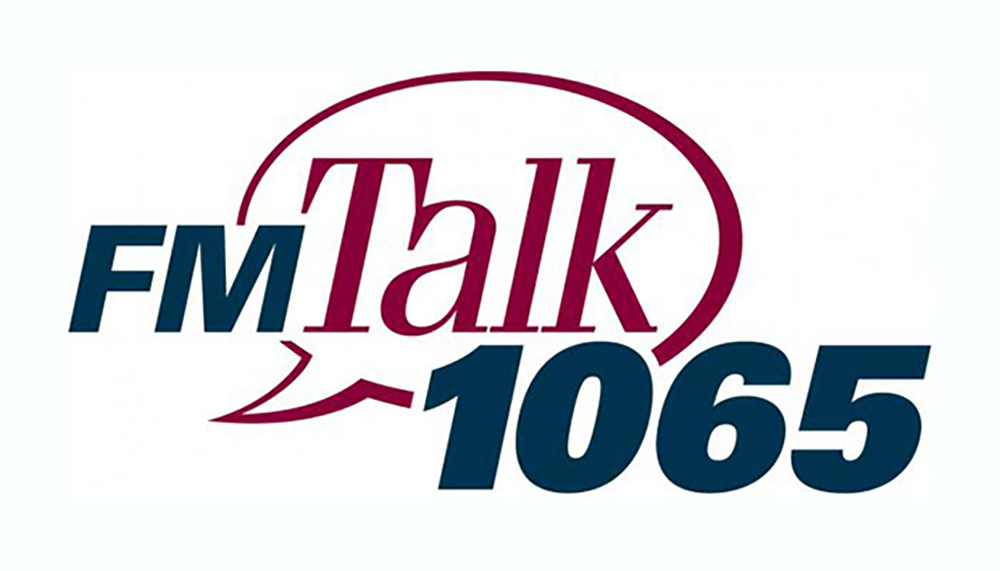-

Senate Gives Green Light to Trump’s Iran Attacks
WASHINGTON—The GOP-controlled Senate rejected a resolution that sought to limit President Trump’s ability to conduct military operations against Iran without congressional approval, with nearly all Republicans officially throwing their support behind Trump’s open-ended mission against the Islamic Republic.
Senators voted to block the measure from advancing, with 47 in favor and 53 opposed, largely along party lines. Democratic Sen. John Fetterman of Pennsylvania voted with Republicans against the measure, while GOP Sen. Rand Paul of Kentucky was the sole Republican who voted in favor.
The resolution, sponsored by Sen. Tim Kaine (D., Va.) would have directed the president to terminate the use of U.S. armed forces in hostilities against Iran or any part of the Iranian government or military unless Congress declared war or voted to authorize the operations.
“Here we are in a war that has cost American lives, that is leading to chaos throughout the region, that threatens to go bigger and bigger and bigger,” Kaine said on the Senate floor ahead of the vote. “And I’m asking the Senate to do what the framers of the Constitution said we should do: debate and vote about matters of war.”
Sen. Mitch McConnell of Kentucky, the former Senate GOP leader who has sometimes publicly clashed with Trump, vigorously defended the president’s “bold and tough” decision to strike Iran. McConnell said the powers of the president for the use of military force without prior congressional approval are “well established.”
But there are risks involved, he warned in a floor speech, and Trump needs to explain his strategy to the American public. “I hope his administration will work to explain the connection between the commander in chief’s worthy objectives and the military and diplomatic means to achieve them,” McConnell said.
Sen. Todd Young (R., Ind.) voted to block the resolution even though he said he was disappointed that lawmakers hadn’t exercised more rigorous oversight ahead of the strikes. “I think Congress as an institution fell short in this case,” Young said.
He said it was apparent for weeks that the U.S. was likely to go to war against Iran, and lawmakers should have been holding hearings and asking probing questions.
“But here we are. We’re at war,” Young said. “And my reading of this situation is, as a practical matter, it would be dangerous to the American people and our national security to withdraw all military action, involvement right now. The country of Iran and the surrounding region has been destabilized.”
Some Republicans on Capitol Hill have made it clear that Trump might need to seek congressional authorization if operations drag on more than a few weeks, or if the U.S. sends in ground troops.
“We need to understand what the endgame is pretty quickly,” said Sen. Thom Tillis (R., N.C.). If operations continue for weeks and involve ground troop deployments, he said, lawmakers will “need to have a serious discussion about the authorization for the use of military force.”
Fetterman, the only Democrat who voted against advancing the resolution on Wednesday, said he was thrilled with the killing of Iran’s Supreme Leader Ayatollah Ali Khamenei over the weekend and believed the U.S. strikes were justified in order to prevent Iran from developing nuclear weapons in the future.
“I’m the only Democrat, because I’m not afraid of my base to just say, ‘You know what? This was, overall, a good thing.’”
Other Democrats said the Constitution gave Congress, not the president, the power to declare war, and that Trump has dragged America into an illegal “war of choice” with no clear timeline, objective or exit strategy.
“That should be bone-chilling to the American people who thought that we were done with feckless, poorly run ground wars in the Middle East,” said Sen. Chris Murphy (D., Conn.).
Another war-powers resolution, similar to the one that failed in the Senate, is expected to get a vote in the House on Thursday. It, too, is expected to fail, with few Republicans expected to buck the Trump administration.
Even if the resolutions had passed both chambers of Congress and made it to the president’s desk, Trump likely would have vetoed it. Without supermajorities of two-thirds to override a veto in both the House and Senate, the resolutions’ effect would have been mostly symbolic.
The votes this week come as the conflict in the Middle East escalates, with Iran targeting sites across the region and Defense Secretary Pete Hegseth telling reporters that the U.S. can carry out its air campaign for as long as it wishes.
Public opinion of Trump’s actions in Iran has appeared fluid in recent weeks. The most recent polls give a mixed picture, with a CNN survey finding 59% of Americans opposed to U.S. military action in Iran, and 41% in support. A Fox News poll of voters, by contrast, found that they were evenly divided, with 50% on either side of the question. Both polls began surveying on the day of the U.S.-Israeli strikes and continued for two or three days.
Senate Votes Against Resolution to Limit Trump’s Iran Operation - WSJ
-

House Oversight Committee votes to subpoena Attorney General Pam Bondi to testify in Epstein probe
Washington — The House Oversight and Government Reform Committee voted Wednesday to subpoena Attorney General Pam Bondi for testimony as part of its investigation into the federal government's handling of the case against convicted sex offender Jeffrey Epstein.
The panel approved a motion from Rep. Nancy Mace, a Republican from South Carolina, to issue the subpoena to Bondi, with five Republicans in all joining with Democratic members in support of the bid.
The GOP lawmakers who supported the effort to subpoena Bondi are: Mace, Colorado Rep. Lauren Boebert, Tennessee Rep. Tim Burchett, Texas Rep. Michael Cloud and Pennsylvania Rep. Scott Perry.
The Justice Department did not immediately respond to a request for comment.
The Oversight Committee had issued a subpoena to the Justice Department for documents related to Epstein last August. Legislation passed with bipartisan support from Congress last year, which was signed by President Trump in November, also required the Justice Department to disclose all material from its investigation into Epstein. Millions of records were made public as a result of the law, called the Epstein Files Transparency Act, with the last tranche of documents released in late January.
Ahead of the vote, Rep. James Comer, a Republican from Kentucky who chairs the Oversight Committee, said Bondi has offered to provide a briefing to members at the Justice Department on the Epstein-related files and "anything else pertaining to that."
Rep. Robert Garcia of California, the top Democrat on the panel, said the public has "significant questions" about the Justice Department's process for releasing the material from its investigation into Epstein.
"The attorney general has gone to speak, obviously, to other committees," he said. "I think it's important that she is in front of our committee. She can directly answer questions about the release of the files, about transparency, about ensuring that victims and survivors are protected."
Bondi appeared before the House Judiciary Committee last month for a hearing focused on oversight of the Justice Department, during which she faced sharp questions from Democrats about the department's handling of the Epstein files. Democratic lawmakers accused Bondi of orchestrating a "cover-up" that shielded people whose names appeared in the millions of pages of material, while failing to redact the names of survivors of Epstein's abuse.
The Justice Department has also been criticized for the pace of the release of the documents. The Epstein Files Transparency Act required all of the material to be released by Dec. 19, 2025, but the Justice Department made the documents public in batches. The department also faced criticism over the first tranche, which contained few mentions of Mr. Trump, though records disclosed in the second wave did mention the president. Mr. Trump has not been accused of wrongdoing.
A CBS News analysis found that the Justice Department took down tens of thousands of files, some of which contained explicit images or survivors' information. But the reasons for the removal of other files, such as a call log with redacted names, are unclear.
The attorney general is not the only member of Mr. Trump's Cabinet who could appear before the committee to answer questions about Epstein. Commerce Secretary Howard Lutnick, under scrutiny for his ties to the disgraced financier, agreed to an interview with the panel, Comer announced Tuesday. A date for his testimony has not yet been set.
Lutnick was among the slew of powerful people revealed to have been in communication with Epstein after the Justice Department made public its trove of records stemming from its probe. While Lutnick had said he cut off contact with Epstein in 2005, documents showed they communicated in the years between Epstein's guilty plea to state prostitution charges in Florida in 2008 and his death by suicide in 2019, after he was indicted on federal sex-trafficking charges.
As part of its investigation into the government's handling of Epstein's case, the Oversight Committee has sought testimony from several former officials and others who were close to him, as well as documents from Epstein's estate.
Investigators held closed-door depositions with former President Bill Clinton and former Secretary of State Hillary Clinton last month, videos of which were released earlier this week.
The former president said of Epstein, "There's nothing that I saw when I was around him that made me realize he was trafficking women." Hillary Clinton, meanwhile, said she knew "nothing about him."
-

Stockton residents push for zoning referendum to block solar farm
STOCKTON, Ala. (WALA) - Residents opposed to a proposed solar farm in Stockton are working to gather signatures for a petition that could place a zoning referendum on an upcoming ballot.
The effort follows a unanimous vote by the Baldwin County Commission accepting a zoning request from a citizens’ group seeking to create a new zoning district to protect the Stockton Landmark District and surrounding area from what they describe as unchecked development.
Residents speak at commission meeting
Stockton resident John Murphy was among several residents who addressed the Baldwin County Commission this week.
“We don’t want to tell someone what they can do on their property, but when it affects everybody else’s property and it affects our town and way of life, we definitely are very concerned,” Murphy said.
City of Bay Minette clarifies its role
The City of Bay Minette also released a statement this week after receiving inquiries from residents. The statement said, in part:
“It is important to clarify that the proposed project is located in an unincorporated area outside the City of Bay Minette’s municipal boundaries and regulatory authority. As such, the City does not have zoning, building code, or permitting jurisdiction over this development.”
The county had previously indicated it had no capability to restrict land use in unzoned areas.
What comes next
The commission’s acceptance of the zoning request allows the citizens’ group to begin collecting signatures. According to Baldwin County Commission Chairman Jeb Ball, petitioners must obtain signatures from 10% of registered voters in the affected area before the process moves forward.
“They’ve got to get ten percent of the registered voters in that area to sign a petition and then it goes through a probate process and it comes back to us. We’ll be the final approval if everything — all the checks and balances. We’ll be the final authority to approve the new districts,” Ball said.
The proposed new zoning district would include the Stockton Landmark District and zoning district 3. Ball said the full petition process could take several months.
“If you add up all the days, I don’t know the exact number but it’s a hundred and twenty days to gather the signatures. Then the probate judge has so many days to verify the petition. If they’re lacking some signatures on the sheet, then the Probate Judge allows another so many days to get the few signatures left to get. Then, they have to be verified,” Ball said.
Ball told FOX10 News that if the petition process is completed successfully, voters could see the measure on the ballot this November. There are no guarantees that a zoning change at this stage would impact the proposed development.
Silicon Ranch plans community meeting
Silicon Ranch, the company behind the proposed solar farm, said it is planning a community meeting. In a written statement, the company said, in part:
“We are actively making plans for a community meeting to address questions and bring facts to address misinformation that has unfortunately become part of the public discourse around our planned investment in Baldwin County.”
No official date has been set for that meeting.
Read more : Stockton residents push for zoning referendum to block solar farm

This Morning with Gordon Deal
FM Talk 1065

Mobile Mornings with Dan Brennan and Dalton Orwig
FM Talk 1065

The Jeff Poor Show
FM Talk 1065

Midday Mobile
FM Talk 1065

The Paul Finebaum Show
FM Talk 1065

The Michael Berry Show
FM Talk 1065

Sweet Home CannaBama
FM Talk 1065

Tonight in Mobile with Mr. Mobile
FM Talk 1065

The Joe Pags Show
FM Talk 1065

The Dana Show
FM Talk 1065

This Morning with Gordon Deal
FM Talk 1065

Mobile Mornings with Dan Brennan and Dalton Orwig
FM Talk 1065

The Jeff Poor Show
FM Talk 1065

Midday Mobile
FM Talk 1065

The Paul Finebaum Show
FM Talk 1065

The Michael Berry Show
FM Talk 1065

The George Williams Show
FM Talk 1065

Beyond the Blockchain
FM Talk 1065

The Joe Pags Show
FM Talk 1065

The Dana Show
FM Talk 1065

This Morning with Gordon Deal
FM Talk 1065

Mobile Mornings with Dan Brennan and Dalton Orwig
FM Talk 1065

The Jeff Poor Show
FM Talk 1065

Midday Mobile
FM Talk 1065

The Paul Finebaum Show
FM Talk 1065

The Michael Berry Show
FM Talk 1065

Scuttlebutt Radio
FM Talk 1065

The Joe Pags Show
FM Talk 1065

The Dana Show
FM Talk 1065

This Morning with Gordon Deal
FM Talk 1065

Mobile Mornings with Dan Brennan and Dalton Orwig
FM Talk 1065

The Jeff Poor Show
FM Talk 1065

Midday Mobile
FM Talk 1065

The Paul Finebaum Show
FM Talk 1065

The Michael Berry Show
FM Talk 1065

FM Talk 1065 - Best of the Week
FM Talk 1065

The Joe Pags Show
FM Talk 1065

The Dana Show
FM Talk 1065

This Morning with Gordon Deal
FM Talk 1065

Mobile Mornings with Dan Brennan and Dalton Orwig
FM Talk 1065

The Jeff Poor Show
FM Talk 1065

Midday Mobile
FM Talk 1065

The Paul Finebaum Show
FM Talk 1065

The Michael Berry Show
FM Talk 1065

FM Talk 1065 - Best of the Week
FM Talk 1065

The Joe Pags Show
FM Talk 1065

Outdoors Show with Don Dubuc
FM Talk 1065

FMTalk1065 Outdoors
FM Talk 1065

Prep Sports Report
FM Talk 1065

Midday Mobile - Saturday Encore
FM Talk 1065

Southern Fairways
FM Talk 1065

FMTalk1065 - Best of the Week
FM Talk 1065

Retire Right Radio
FM Talk 1065

The Jolene Roxbury Variety Hour
FM Talk 1065

The Kim Komando Show
FM Talk 1065

Free Talk Live
FM Talk 1065

FMTalk1065 Outdoors
FM Talk 1065

Free Talk Live
FM Talk 1065

FMTalk1065 Best of the Week (Sunday AM)
FM Talk 1065

FMTalk1065 Outdoors
FM Talk 1065

The Jolene Roxbury Variety Hour
FM Talk 1065

Truitt News Radio
FM Talk 1065

Plain Living with Bill Finch
FM Talk 1065

Sip & Chew with Mike & Stu
FM Talk 1065

Coasting in Retirement with Josh Null
FM Talk 1065

What Would Your Money Say? with Swan Capital
FM Talk 1065

This Weekend with Gordon Deal
FM Talk 1065

Talking Dirty
FM Talk 1065
Relax and Retire Financial Services
FM Talk 1065

FM Talk - Best of the Week
FM Talk 1065

Plain Living with Bill Finch
FM Talk 1065

FMTalk1065 Outdoors
FM Talk 1065

Prep Sports Report (Sunday Replay)
FM Talk 1065

Free Talk Live
FM Talk 1065






